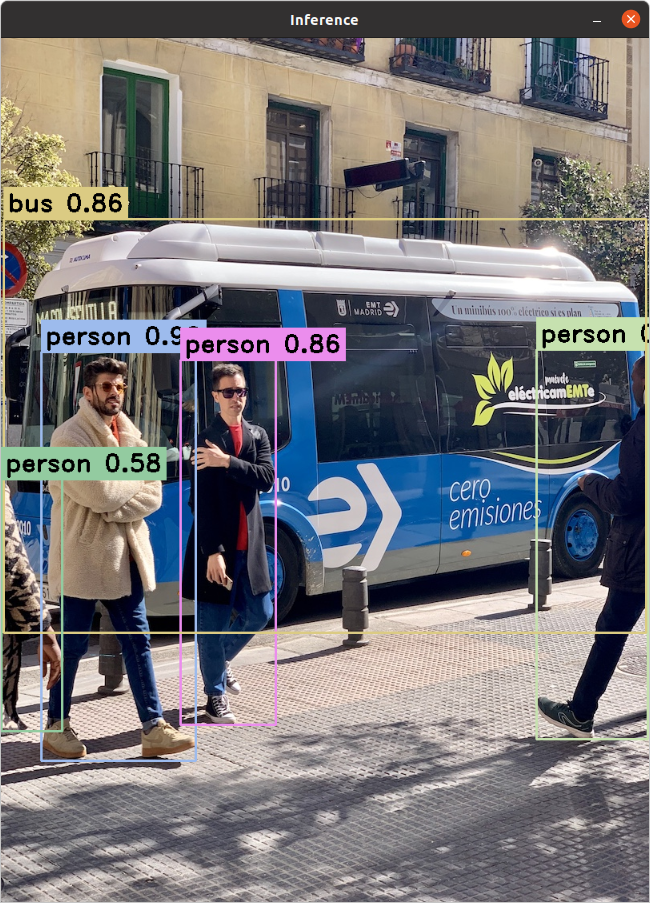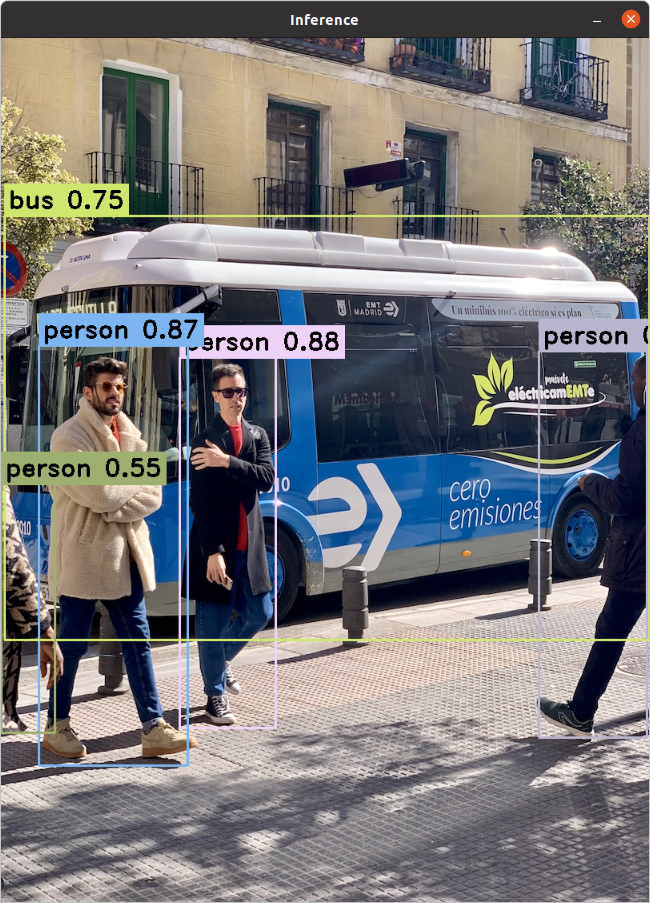You can not select more than 25 topics
Topics must start with a letter or number, can include dashes ('-') and can be up to 35 characters long.
58 lines
1.6 KiB
58 lines
1.6 KiB
|
2 years ago
|
# yolov8/yolov5 Inference C++
|
||
|
|
|
||
|
|
Usage:
|
||
|
|
|
||
|
|
```
|
||
|
|
# git clone ultralytics
|
||
|
|
pip install .
|
||
|
|
cd examples/cpp_
|
||
|
|
|
||
|
|
Add a **yolov8\_.onnx** and/or **yolov5\_.onnx** model(s) to the ultralytics folder.
|
||
|
|
Edit the **main.cpp** to change the **projectBasePath** to match your user.
|
||
|
|
|
||
|
|
Note that by default the CMake file will try and import the CUDA library to be used with the OpenCVs dnn (cuDNN) GPU Inference.
|
||
|
|
If your OpenCV build does not use CUDA/cuDNN you can remove that import call and run the example on CPU.
|
||
|
|
|
||
|
|
mkdir build
|
||
|
|
cd build
|
||
|
|
cmake ..
|
||
|
|
make
|
||
|
|
./Yolov8CPPInference
|
||
|
|
```
|
||
|
|
|
||
|
|
To export yolov8 models:
|
||
|
|
|
||
|
|
```
|
||
|
|
yolo export \
|
||
|
|
model=yolov8s.pt \
|
||
|
|
imgsz=[480,640] \
|
||
|
|
format=onnx \
|
||
|
|
opset=12
|
||
|
|
```
|
||
|
|
|
||
|
|
To export yolov5 models:
|
||
|
|
|
||
|
|
```
|
||
|
|
python3 export.py \
|
||
|
|
--weights yolov5s.pt \
|
||
|
|
--img 480 640 \
|
||
|
|
--include onnx \
|
||
|
|
--opset 12
|
||
|
|
```
|
||
|
|
|
||
|
|
yolov8s.onnx:
|
||
|
|
|
||
|
|

|
||
|
|
|
||
|
|
yolov5s.onnx:
|
||
|
|
|
||
|
|

|
||
|
|
|
||
|
2 years ago
|
This repository is based on OpenCVs dnn API to run an ONNX exported model of either yolov5/yolov8 (In theory should work
|
||
|
|
for yolov6 and yolov7 but not tested). Note that for this example the networks are exported as rectangular (640x480)
|
||
|
|
resolutions, but it would work for any resolution that you export as although you might want to use the letterBox
|
||
|
|
approach for square images depending on your use-case.
|
||
|
2 years ago
|
|
||
|
2 years ago
|
The **main** branch version is based on using Qt as a GUI wrapper the main interest here is the **Inference** class file
|
||
|
|
which shows how to transpose yolov8 models to work as yolov5 models.
|